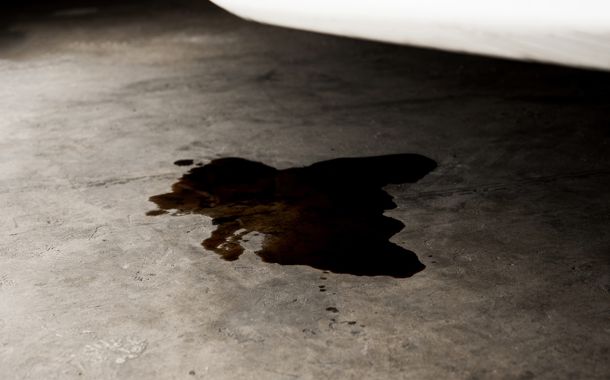Oil Leak Repair Cost
Last Updated on December 27, 2023
Written by CPA Alec Pow | Content Reviewed by ![]() CFA Alexander Popinker
CFA Alexander Popinker
An oil leak is among the most typical issues an automobile owner can come across. If you start to notice a puddle, stain, or splotch below your vehicle, then it’s time to head to your local mechanic to get the issue checked and solved as quickly as possible. If the fluid is confirmed as engine oil, this might be a severe case considering that engine oil is what oils the pistons in your engine, ensuring they move efficiently within the housing.
The expense of an oil leak repair work can depend upon the complexity of the issue, the size of the leakage, your geographical area, the mechanic carrying out the job, and the make and model of the car.
Just how much does engine oil leak repair work cost?
An oil leak diagnosis, to see what is causing the oil to drip, can cost $75 to $135. This will not include any repair work, just the diagnosis itself, if you were to work with a mechanic or dealer for the repair work, the diagnosis charge will usually be added to the final cost. The repair work to take care of an oil leak will all depend upon the kind of repair work that will have to be carried out. You can check out our table below to see what it might cost at a local mechanic.
| Type of Oil Leak Repair | Cost |
|---|---|
| Corroded oil cooler line | $90 to $400 |
| Damaged gasket | $75 to $200 |
| Damaged hose | $90 to $400+ |
| Damaged oil pan | $100 to $400 |
| Damaged piston | $600+ |
| Improperly installed oil filter | $20 to $60 |
| Missing gasket | $50 to $100 |
| New oil drain plug gasket | $30 |
According to a member on City-data.com, they were given an estimative quote of $1,000 to repair the main seal on their vehicle which was leading to the oil leakage.
You might also like our articles about the cost of general oil change, oil change at Walmart, or full engine swap.
Somebody on Car Talk asked if $560 was a reasonable rate to pay to change an oil pan gasket. Despite the fact that the oil pan gasket retailed for $30, the labor would be close to $560 considering that it would be a tough spot to get to.
Oil leakage repair work details
There are lots of reasons why oil can leak from an automobile’s engine. This can include an oil drain plug that’s not sealing; a damaged tube, gasket, piston, or ring, damaged oil pan, rusted oil cooler line, poorly set up oil filter, and/or a missing gasket. It can be as easy as tightening up a bolt in the oil pan to as complicated as replacing a part very tough to reach. Oil dripping after an oil change, for instance, might mean the oil filter wasn’t placed on right.
What are the additional expenses?
 After the oil leakage has actually been fixed, the oil will have to be added, and a lot of mechanics will even recommend a full oil replacement. Some will add this in their initial billing, while others might charge additionally. The typical oil change can cost $20 to $50, depending upon the oil being that will be used.
After the oil leakage has actually been fixed, the oil will have to be added, and a lot of mechanics will even recommend a full oil replacement. Some will add this in their initial billing, while others might charge additionally. The typical oil change can cost $20 to $50, depending upon the oil being that will be used.Tips to keep in mind
Do not confuse your engine oil with any other fluid. Engine oil, for instance, will always be brown or black, however, it can be an amber-like color if it’s newer oil. Power steering fluid, on the other hand, will typically be red, green, or clear, while automated transmission fluid will be red. Another typical fluid that will at some point leak, engine coolant, can be green, orange, clear, or red.
How can you save some money?
You should never overlook an oil leak, even if you do not know for sure if it’s oil. Failing to take it to a mechanic in time can usually result in more problems, costing a lot more than what you would have spent on this particular issue.
The large bulk of oil leakages that happen will frequently originate from a damaged engine gasket, an oil pan leakage, or a bad connection between parts. If you are familiar with vehicle repairs, crawl beneath the automobile and carefully analyze the oil pan seals to ensure they are undamaged. Also, while underneath, also have a look at the timing cover seals and the valve cover gasket to ensure that all of them are sealed also.
While it should not be considered a permanent service, there are oil leakage products that might have the ability to help in the short run. The products merely mix with the oil and can stop small leakages.


Leave a Reply
Want to join the discussion?Feel free to contribute!